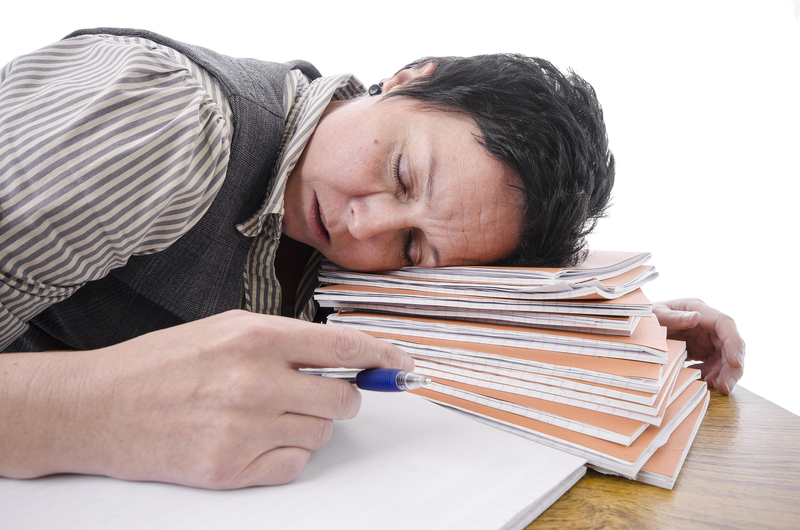Unions warn teachers are under so much pressure they are being “reduced to tears”, highlighting yet another difficulty facing the sector.
It certainly seems as if the education sector is in disarray lately. Last week it reported difficulties retaining staff, with teachers leaving in droves. In a leaked letter, it was revealed the situation has become so dire the Department for Education is seeking teaching staff from overseas.
There is no question teachers are under a significant amount of pressure to do more with less, as are most of the public sector. However, as class sizes continue to grow and workload continues to creep, the pressure will increase. In a sector already pushed to breaking point it is difficult to see how much more teachers can take.
This is not the first time the difficult workload facing teachers has been under scrutiny. Teachers are known for working long hours, preparing lessons at home and marking work all weekend. However, the response to this is usually about the number of holidays teachers get in the year. No one stops to consider the fact teachers will work through most of their time off when they should be recharging their batteries. Why is this the case? Why do we expecting such unrealistic dedication from the profession?
There is something fundamentally broken in the system and it has to change. It is becoming a worrying trend that some of the most talented teachers across the country are leaving the profession due to a poor work-life balance and increasing stress.
General Secretary of the Association of Teachers and Lectures (ATL) Mary Bousted revealed this is certainly the experience she has had. She warned the workload facing teachers was leaving some staff in tears and unable to cope with the stress.
Bousted also said it was concerning that high stress levels were now considered part of the job.
She cited an example of a newly qualified teacher who had asked for help with an impossible workload. The new teacher was working until 11pm each night and all of the weekend. The teacher was told “that’s the way teaching is.”
It is this acceptance of the situation that continues to drive the idea it is acceptable for staff to work seven days a week. It is hardly surprising a vast number of teachers are leaving for greener pastures—or at least for professions that give them time to sleep.
Bousted said: “Teachers, as professionals, expect to work hard but should not be expected to devote every minute of their lives to their work.
“Teachers need time to relax, to pursue hobbies, to talk to their families and friends. They need time to be human.”
And this is the crux of the matter: teachers are entitled to a life. The sector is currently failing to provide this, and while the government is seeking to find a way to reduce workloads it seems like a case of too little, too late.
General Secretary of the Association of School and College Leaders (ASCL) Brian Lightman also shared Bousted’s views. He said: “It’s essential that we all pay attention to the well-being of staff. That’s a shared responsibility between colleagues of the same level, middle leaders, senior leaders and governors, who ultimately carry the duty of care.”
As the number of pupils needing school places continues to grow the situation is only going to get worse. Falling numbers of teachers undertaking training and vast numbers leaving the profession is creating the perfect storm for the education system to come to its knees. If Britain wants to continue to be successful, to promote social mobility, to be innovative it must take the education of the next generation seriously. To do this the country must train, but most importantly retain quality teaching staff. This will require a significant overhaul of the profession, starting with the amount of work expected.












My partner is a teacher, and it’s definitely true that during term time, teachers do a lot of work outside school hours. If she is teaching the following day, she will normally get home and spend the entire evening working to prepare the lessons for the next day. She occasionally works at the weekend and usually does no work whatsoever during the holidays. So it’s not quite as bad as some teachers like to make out. Nonetheless I agree that the pressure is too much. Ten years ago, 15 of my friends were teachers. Now all but 5 have gone to alternative careers because they couldn’t handle the stress/burnout during term time.
Teachers…. doctors…. social workers ….everyone in the public sector to a greater or lesser degree. We burn out trying too hard to paper over the cracks, being guilt tripped by a public who expect us to be morally better than them as they don’t give a fig until we don’t help them (quick as you like please). We all know any system failure in service is blamed on the individual worker there doing their best at the time. Employers and professional bodies refuse to speak out collectively and consistently on our behalf. We on the front line are all simply too tired to be angry and too many have accepted and co-operate with the big lie…… it’s not going to stop unless we stand as one across all sectors….. we are being picked off by policy snipers….
Hi, yes I never thought I will reach this point but Im also considering leaving teaching profession as Im exhausted and in tears from constant demands from my school. We had Ofsted last week and than the leadership requested another 2 days of lesson plans and observations. Surely it is a joke. Despite the fact I work 12 hours a day and most Sundays I am not able to catch up. So I think Im failing and im not suited for this profession I love so much.